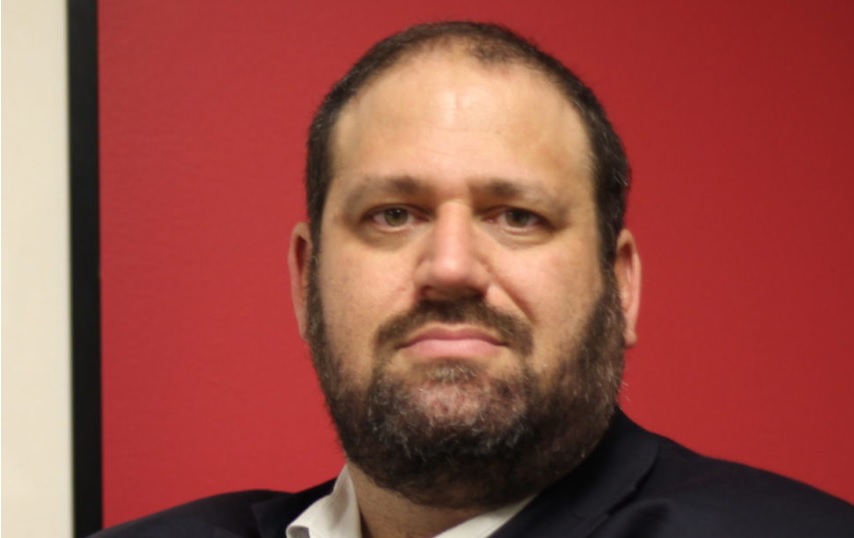Sohn Fan: GOP Nomination Pushback Could Backfire
Without Democratic majority, says Public Knowledge SVP Harold Feld, billions in broadband subsidies could be blocked

The smarter way to stay on top of the multichannel video marketplace. Sign up below.
You are now subscribed
Your newsletter sign-up was successful
While some argue the FCC could issue the report without the commissioners having to vote, Feld says they have got that wrong because the statute directs the commission to do it, and that means the full commission under regular process, which means a vote. "[T]here is no statutory mechanism for the FCC to issue the report...without a Commission vote," he said.
Sohn was nominated for the vacant fifth FCC seat, one that represents a Democratic majority that would allow the agency to proceed with restoring network neutrality rules based on Title II of the Communications Act, a common-carrier designation Republicans — and internet service providers — strongly oppose.
Also: Wall Street Journal Takes Fresh Aim at Sohn
In an op-ed for blog web site Wetmachine, Feld, senior VP of Public Knowledge, the advocacy group Sohn once headed, said that Republicans “who think there is no downside to dragging Sohn’s confirmation out interminably to block Title II” have another think coming.
The money is being overseen by the National Telecommunications & Information Administration, but the FCC must first get a better handle on where broadband is or isn't before NTIA can hand the funds out. That decision will likely need a fifth FCC commissioner to prevent a stalemate.
By his reasoning, how the FCC draws up new broadband availability maps, on which the billions in subsidies hinge, is one of the contentious issues that will require a Democratic majority to avoid a stalemate that would prevent any movement on the mapping front.
While Republicans on the commission are likely to want the money to be targeted to where there is no broadband at all, Democrats argue that price and quality should be part of the definition of available, i.e., service that is too expensive or too slow should not meet the definition of available.
The smarter way to stay on top of the multichannel video marketplace. Sign up below.
And while Feld concedes it is possible the FCC could issues a map without controversy, ”I would not want to bet my state‘s broadband on it, given that I can’t find a single broadband report vote in the last decade that wasn’t a 3-2 party-line vote.”
The FCC issues an annual broadband deployment report, the conclusions on which Democrats and Republicans historically disagree. Reports issued under Democrats emphasize the continued digital divide and suggest that until every American has broadband, it is not yet deployed to “everyone, as Congress has directed.” Republican reports talk up the progress that has been made — which they argue translates to reasonable and timely deployment — and the need to remove barriers (read regulations) to investment and innovation.
What the FCC concludes is important because it is empowered to regulate to ensure the reasonable and timely deployment of advanced telecommunications to all Americans.
And until the FCC can get a better handle on where broadband is or isn’t based on new maps, the NTIA can’t start handing out billions in subsidies under the Broadband Equity Access and Deployment (BEAD) program or subsidies for middle-mile connections between customer-facing ISPs and the internet backbone, Feld points out.
The subsidy legislation does not give the FCC a deadline, Feld said, but does say the NTIA money can't flow until the new maps are published.
While some argue the FCC could issue the report without the commissioners having to vote, Feld says they have got that wrong because the statute directs the commission to do it, and that means the full commission under regular process, which means a vote. “[T]here is no statutory mechanism for the FCC to issue the report … without a commission vote,” he said.
Meanwhile, Sohn‘s nomination continues to be in a legislative limbo. While she has had two hearings in the Senate Commerce Committee, the committee vote to favorably report the nomination it to the full Senate for a vote was a tie, so the Senate would have to vote to discharge the nomination from committee, then vote on the underlying nomination, neither of which has happened yet, suggesting all the Democrats are not on board. It would take all 50 Democrats to discharge the nomination from committee, plus a tie-breaking vote by Vice President Kamala Harris, to confirm Sohn if the Republicans are putting up a united front against her.
That is what it took to confirm the fifth Federal Trade Commission member, Alvaro Bedoya, after his committee vote was tied but the Democrats mustered their forces to push the nomination through. ■
Contributing editor John Eggerton has been an editor and/or writer on media regulation, legislation and policy for over four decades, including covering the FCC, FTC, Congress, the major media trade associations, and the federal courts. In addition to Multichannel News and Broadcasting + Cable, his work has appeared in Radio World, TV Technology, TV Fax, This Week in Consumer Electronics, Variety and the Encyclopedia Britannica.

